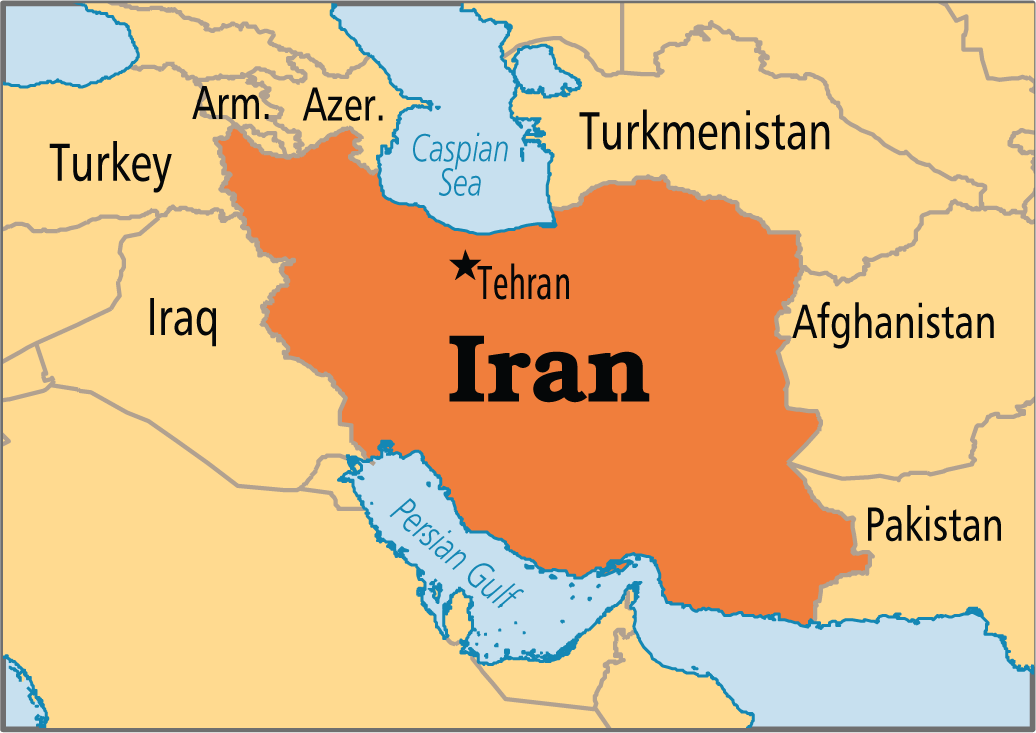International Relations
Falling Rupee Reserves of Iran
- 06 Mar 2021
- 6 min read
Why in News
Recently, Indian merchants have almost entirely stopped signing new export contracts with Iranian buyers due to caution about Iran’s falling rupee reserves with Indian banks.
- Earlier in 2020, the Ministry of External Affairs informed that India is no longer involved in the Farzad-B gas field project of Iran. The reasons included policy changes by the Iranian government, Iran’s uncertain finances, and the USA sanctions situation.
- In 2020, Iran also passed a bill allowing the government to slash four zeros from the Rial and authorizing its replacement with another basic unit of currency called the toman (redenomination).
Key Points
- Falling Reserves:
- Iran’s rupee reserves in India’s UCO and IDBI Bank, the two lenders authorised to facilitate rupee trade, have depleted significantly.
- Reasons:
- Under the USA sanctions, Iran is unable to use US dollars to transact oil sales.
- Iran previously had a deal to sell oil to India in exchange for rupees, which it used to import critical goods, including agricultural commodities, but India stopped buying Tehran’s oil in May 2019 after a US sanctions waiver expired.
- Iran continued using its rupees to buy goods from India, but after 22 months of no crude sales, Iran’s rupee reserves have fallen.
- Iran’s reserves have reduced significantly and will be over soon probably because trade has stopped.
- Implications:
- Apprehension of Exporters:
- Exporters are not sure whether they would be paid on time for new shipments and they are avoiding dealing with Iran since payments are getting delayed.
- Falling Indian Exports:
- India's overall exports to Iran fell 42% in 2020 from a year ago to USD 2.2 billion, the lowest in over a decade.
- The fall is continuing in 2021 and in January this year exports more than halved from a year ago to USD 100.20 million.
- Growing Influence of China:
- Recently signed deals between Iran and China will vastly expand Chinese presence in banking, telecommunications, ports, railways and dozens of other projects.
- Saving India's Interests:
- The China Iran strategic partnership fructifying USD 400 billion deal may be an impediment for Indian entry routes into Afghanistan through Chabahar and further connectivity to International North South Transportation Corridor (INSTC), although Iran has not given any signals of disruption of these projects.
- India's Role in the Region:
- Maintaining ties with Iran even as it forges a new relationship with Saudi Arabia and Israel is critical for its balancing policy in West Asia.
- Avoiding Sectarian Tension:
- Since India is home to sizable populations of both Shia and Sunni Muslims and seeks to isolate itself from any sectarian tensions in the region, India should do well to neither completely break off ties with Iran nor go against the United States outright.
- India's Energy security:
- India has stopped purchasing Iranian oil, which accounts for around 90% of its imports from the Islamic nation.
- India was Iran's leading oil client after China until mid-2018.
- India has stopped purchasing Iranian oil, which accounts for around 90% of its imports from the Islamic nation.
- Peaceful Afghanistan:
- India, having made significant investments in Afghanistan, will always hope for an Afghan elected, Afghan led, Afghan owned peace and reconciliation process and a popular democratic government in Afghanistan.
- However, India has to be watchful of Iran - Pakistan- China axis developing in the neighbourhood of Afghanistan, with tentacles in the form of terror groups inside it.
- Pakistan's Influence:
- Pakistan is very active in the Middle-east. Using the platform of Organisation of Islamic Cooperation (OIC) and making connections with the particular Arab countries, Pakistan is trying to get support on the Kashmir issue.
- Apprehension of Exporters:
Way Forward
- In 2019, New Delhi seems to have weighed in favor of Indo-USA ties by deciding to halt oil imports from Iran. However, it will have to find a way, either by persuading Washington to grant an exemption or by circumventing USA sanctions like it did in 2012-13, to continue its relationship with Iran in order to secure its energy supply and its regional foreign policy objectives.
- India is very reliant upon Middle East oil and gas and must maintain cordial relations with most of the major suppliers, including Iran, UAE, Qatar, and Saudi Arabia, as well as Iraq.





